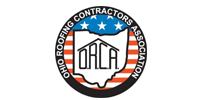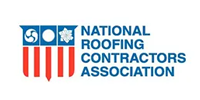Chimney Flashing Repair
Northwest OH and Southeast MI
Licensed in Ohio and Michigan
Skylights and Gutters
Repair Specialist
Schedule Your Chimney Flashing Repair Today
Is your chimney flashing showing signs of wear and tear? Don't let a small issue turn into a big problem. Holt Roofing Company, Inc specializes in chimney flashing repair for homeowners in Northwest OH and Southeast MI. Our services include:
- Thorough inspection of existing flashing
- Removal of damaged or corroded flashing
- Installation of new, high-quality flashing materials
- Sealing and waterproofing
- Chimney crown repair and replacement
- Brick and mortar repair
Protect your home from water damage and maintain your chimney's integrity.
Reach out to us for a comprehensive chimney flashing repair solution.
Ensuring Your Home's Protection
Chimney flashing plays a crucial role in safeguarding your home against water intrusion. Here's why you might need our chimney flashing repair services:
- Visible rust or corrosion on existing flashing
- Water stains on walls or ceilings near the chimney
- Loose or missing flashing pieces
- Cracks in the chimney structure
- Peeling paint or wallpaper around the chimney area
- Musty odors in the attic or rooms adjacent to the chimney
Don't ignore these warning signs. Timely repairs can prevent costly water damage and extend the life of your chimney and roof.
Why Choose Holt Roofing Company
When it comes to chimney flashing repair, Holt Roofing Company stands out as the preferred choice in Northwest OH and Southeast MI. Here's why homeowners trust us:
- Over 78 years of roofing experience
- Family, woman, and veteran-owned business
- Comprehensive workmanship and manufacturer warranties
- 10-year workmanship warranty on repairs
- Multiple award-winning, including Best of Toledo 2022
- Fully insured and bonded for your peace of mind
- Financing options available to suit your budget
- Certified Velux 3 Star Skylight specialists
- Support with insurance claims
Our commitment to quality and customer satisfaction is evident in our numerous accolades, including the Marketplace Ethics Award and BB Marketplace Award for Ethics.
Contact Us
Don't let chimney flashing issues compromise your home's integrity. Holt Roofing Company is ready to provide expert chimney flashing repair services tailored to your needs. Our team of skilled professionals will ensure your chimney is properly sealed and protected against the elements.
Contact us today to schedule your free estimate and take the first step towards a safer, more secure home.
- Bullet text
- Bullet text
- Bullet text
- Bullet text
- Bullet text
- Bullet text
- Bullet text
- Bullet text
- Bullet text
- Bullet text
Title or Question
Describe the item or answer the question so that site visitors who are interested get more information. You can emphasize this text with bullets, italics or bold, and add links.Title or Question
Describe the item or answer the question so that site visitors who are interested get more information. You can emphasize this text with bullets, italics or bold, and add links.Title or Question
Describe the item or answer the question so that site visitors who are interested get more information. You can emphasize this text with bullets, italics or bold, and add links.

Senior and Veteran Savings on Roofing
Holt Roofing Company offers exclusive discounts for senior citizens and veterans. Enjoy quality roofing services at reduced prices in Northwest OH and Southeast MI.
Call Holt Roofing today for your discount!
Gallery Heading H2
Reviews
Multiple
Award-Winning Roofers











